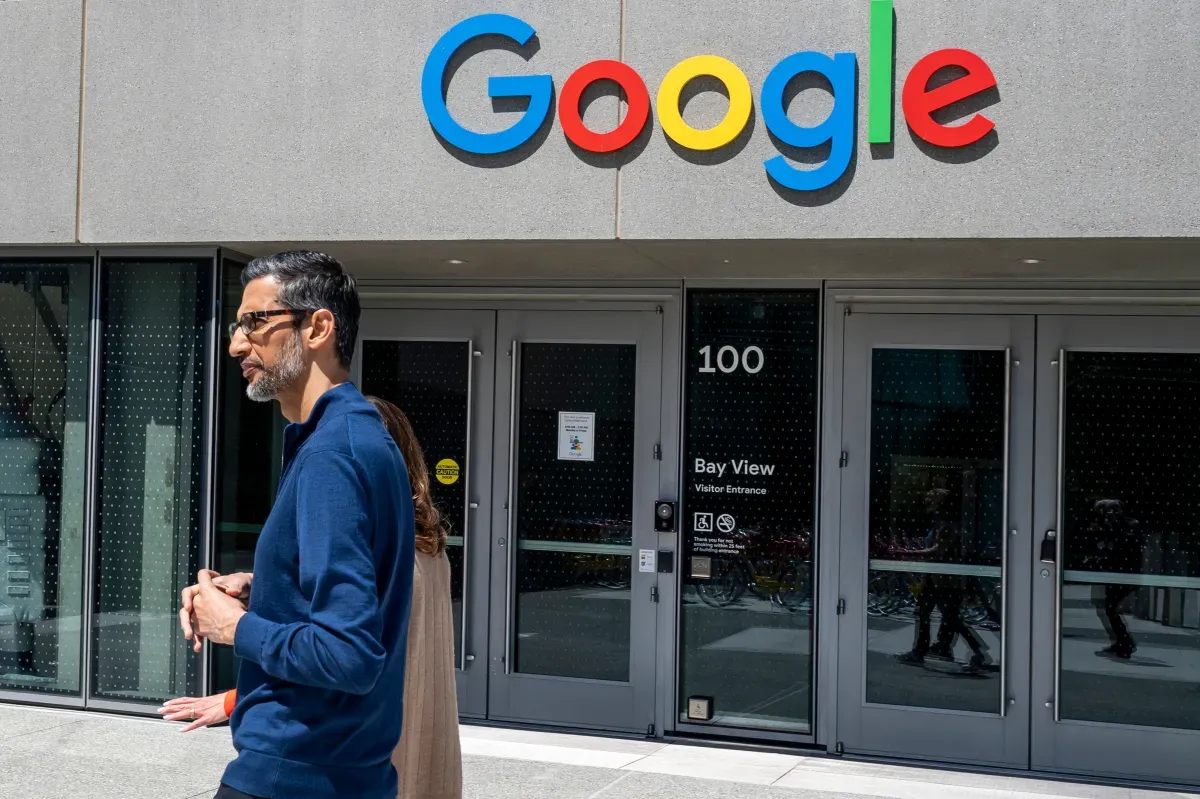UK May Require Google to Offer Fairer Search Results and Alternatives
UK regulators are ramping up pressure on Google to reform its search dominance. The Competition and Markets Authority (CMA) is evaluating whether to assign Google a “strategic market status” under the new Digital Markets Competition Regime. If confirmed, Google could be required to give users alternative search engines, improve fairness in ranking search results, and offer content publishers more control over how their data is used in AI features like Google’s AI Overviews and Gemini AI Assistant. This move responds to growing concerns that Google’s dominance in search—over 90% of queries in the UK—limits competition and inflates costs for advertisers.
Image Credits:David Paul Morris/Bloomberg / Getty ImagesWhy the UK Is Targeting Google’s Search Dominance
The CMA’s concerns stem from Google’s overwhelming influence on the UK’s digital economy. With the vast majority of UK web searches handled through Google, the regulator argues that the platform acts as a gatekeeper to the internet. Businesses collectively spent more than £33,000 per advertiser on Google search ads in 2024, a figure the CMA believes could be lower in a more competitive environment. By designating Google with strategic market status, the UK would be able to enforce several key changes—including mandating a “choice screen” so users can select different search providers and services such as AI assistants.
Such regulation mirrors past actions taken by other regulators globally, like the European Union’s Digital Markets Act. However, the UK’s new regime gives the CMA more teeth, including the ability to enforce specific behaviors rather than just issue fines. This latest move is part of a broader shift by regulators worldwide to rein in Big Tech, promote competition, and protect both consumers and businesses from monopolistic practices.
Proposed Changes: More Choice, Transparency, and Control
If Google receives the strategic market status designation, it would have to follow strict rules meant to level the digital playing field. Among the key proposals are giving users the option to switch to other search engines, ranking results with more fairness and transparency, and allowing people to easily move their search data elsewhere. Additionally, publishers would gain greater autonomy over how Google uses their content, especially in AI-generated answers—addressing one of the biggest complaints from media and content creators.
These proposed requirements signal a shift toward consumer and business empowerment. Instead of allowing a single tech giant to dictate search visibility and advertising costs, the CMA wants to open up the ecosystem to foster more innovation. It also reflects growing unease with how Google leverages publisher content in its AI Overviews—summarizing information without always directing traffic back to the original source. Fair ranking and better attribution could give smaller publishers and competing services a much-needed boost.
What This Means for Google, Businesses, and Users
Google’s designation could usher in a new era of digital regulation, where tech monopolies face proactive rules rather than reactive penalties. For users, this may translate to more search engine choices, better privacy controls, and more reliable access to diverse content. For businesses—especially small and medium-sized enterprises—reduced advertising costs and visibility opportunities could spur growth. And for publishers, stronger control over AI usage of their content may restore value to original journalism and creativity.
Still, it’s a delicate balance. Google may challenge the designation, or push back on proposed changes, citing user experience and integration benefits of its unified search services. But if the CMA finalizes this strategic status by October 13, it could set a precedent for other regulators. Whether it leads to meaningful change or sparks another tech policy showdown, one thing is clear: the future of digital competition in the UK is being rewritten—and Google will be central to that story.


